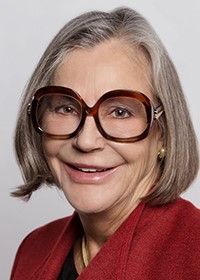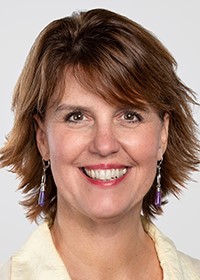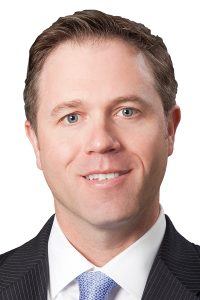Alice Walton’s Whole Health Institute will build a new medical school in Bentonville
by March 4, 2021 9:01 am 22,042 views

Walmart Inc. heiress and philanthropist Alice Walton announced Thursday (March 4) plans to build a new medical school in Bentonville.
Whole Health School of Medicine and Health Sciences will break ground in 2022. The first students will begin classes in 2024 and will graduate in 2028. A news release did not include a specific site where the school would be built or project cost.
The independent, nonprofit medical school will be a standalone sister organization of Whole Health Institute, a Bentonville nonprofit created to make a transformative approach to health and well-being available to everyone. Walton announced the institute’s creation during the Northwest Arkansas Council’s winter meeting at Crystal Bridges Museum of American Art in January 2020. It’s being built on the museum’s 120-acre grounds in Bentonville.
“The Whole Health School of Medicine will help medical students rise to the health challenges of the 21st century through a reimagination of American medical education that incorporates mental, emotional, physical and spiritual health, the elements of Whole Health, to help people live healthier and happier lives,” Walton said in a news release.
Dr. Tracy Gaudet, formerly the executive director of the Veterans Health Administration’s National Office of Patient Centered Care and Cultural Transformation, is the founding executive director of the Whole Health Institute. She said the medical school’s goal is to create a new paradigm for whole health medical education by creating a pipeline of medical professionals trained in conventional medicine and whole health aspects.

“The creation of the Whole Health School of Medicine is a step forward in rethinking systems in our society to achieve better health and well-being,” Gaudet said.
Gaudet said the medical school would include between 40 and 50 students in its initial class in 2024. She said the school’s number of jobs and staffing levels are undetermined, but the core leadership team is already in place:
- Elly Xenakis, formerly vice chair for education, the division chief of the maternal-fetal medicine division, and residency program director in the Department of Obstetrics and Gynecology at the University of Texas Health Science Center at San Antonio, is the founding dean.
- Colleen O’Connor, formerly associate dean of curricular affairs at Duke University School of Medicine, is the executive vice dean.
- Adam Rindfleisch, formerly an associate professor in the family medicine department and the medical director in integrative health at the University of Wisconsin-Madison School of Medicine and Public Health, is the vice dean for education.
“I’m delighted to join this innovative new School of Medicine and Health Sciences and help develop a new paradigm for medical education that changes how people’s health is supported to improve outcomes and lower costs,” Xenakis said in a statement. “Grounded in a focus on the whole person, physicians of the future will be better equipped to redesign professional care and to empower and support people.”
According to the release, the school seeks accreditation from the Liaison Committee on Medical Education (LCME), the accrediting body for educational programs at medical schools in the United States and Canada. The curriculum will introduce traditional and conventional medicine with integrative techniques and include biomedical sciences, clinical training, medical entrepreneurship, research, and a capstone with whole health principles.
The medical school will offer a four-year, allopathic program, meaning graduates will receive a Doctor of Medicine (MD) degree. Health Sciences degrees and certificates will be offered, including functional nutrition, mental health, social work, and health coaching; faculty development in whole health approaches and national certification of existing educational programs that align with the principles and practices of whole health.
The School of Medicine and Health Sciences will collaborate closely with the healthcare community in Arkansas and beyond and seek clinical affiliations with local inpatient and outpatient providers.

Discussions are underway for ongoing collaborations with local providers and the Northwest Arkansas Council Healthcare Transformation Division. That includes Arkansas Children’s Northwest, Community Clinic, Mercy Hospital Northwest Arkansas, Northwest Medical Center, Washington Regional Medical Center, the University of Arkansas for Medical Sciences (UAMS) Northwest, the University of Arkansas and Veterans Health Care System of the Ozarks.
Officials from Whole Health Medical School and UAMS Northwest in Fayetteville — a satellite campus of Little Rock-based UAMS, the state’s only academic medical campus — have had ongoing conversations about opportunities to collaborate, as opposed to competing against one another. That would include working with the University of Arkansas’ new research facility, called Institute for Integrative and Innovative Research (I3R), ensuring appropriate clinical placements of both schools’ students and co-developing curriculum for faculty development.
REGIONAL, STATE IMPACT
In 2019, the Northwest Arkansas Council released a report which found that the region lost nearly $1 billion per year because people left Northwest Arkansas for high-level specialty care. The council’s plan for addressing that issue included adding 200 additional residency positions, increasing integrative research to attract high-quality physicians and establishing a four-year medical school.

“Alice Walton’s vision begins here in Arkansas with the School of Medicine as an integral part of the growing and vibrant Northwest Arkansas community effort to become a premier healthcare destination,” said Nelson Peacock, president and CEO of the Northwest Arkansas Council. “The ultimate aspiration is to provide access to an approach to health that works better for Arkansas and eventually for all Americans.”
The medical school will bring jobs to the region and retain as many graduates as possible to the state for their residency training and practice. That will ultimately increase the number of healthcare providers in the state and contribute to the health and well-being of residents.
We are committed to this being [a benefit] for the state,” Gaudet said. “We want to have medical students working throughout the state and bring clinical affiliations across the state. This is an opportunity to meet the need of a medical school in the region and also bring this innovative approach that will help address health and well-being in a more impactful way.”
